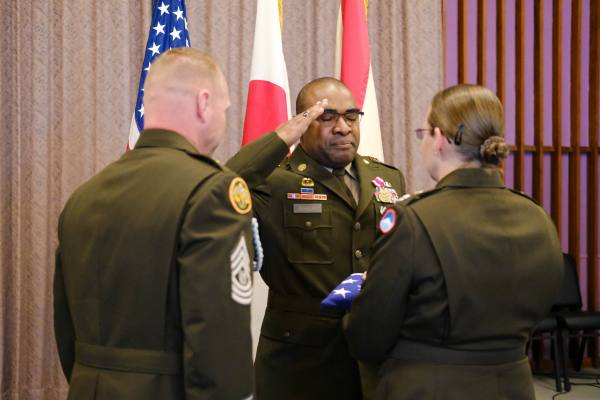Ten principles for a military retirement
By Army Retirement Services July 2025
- Retirement is a process, not an event. If you think of retirement as a ceremony, you’re already in trouble. Retirement is also NOT just out processing.
- Start early. Don’t underestimate the amount of time, commitment, and planning required. Start 36 months before you plan to retire. See Chapter 2 of the 2025 U.S. Army Retirement Planning Guide or the Retirement Checklists on the Soldier for Life website, at: https://soldierforlife.army.mil/Army-Retirement/Retirement- Planning/Retirement-Checklists for the 36-month timeline.
- Do your homework. Don’t assume you know what to do or when to do it. Invest in your transition if you want to succeed.
- Ask for help. Seek out advice from mentors, peers, retirement services officers, retired service members, transition assistance program personnel, benefits specialists, state veterans officials, Department of Veterans Affairs personnel, TRICARE advisors, etc. Let those who’ve gone before you share their experiences and lessons learned.
- Don’t go it alone at home. Involve your spouse and family in the planning early and often. Retirement impacts the whole family.
- Make a timeline of required tasks and stick to it. Update it periodically.
- Make a financial plan. Create a transition account for a possible employment gap, for new clothing, for much higher taxes, for life insurance, SBP, and any other unforeseen expenses.
- Know the available resources. The U.S. Army Retirement Planning Guide, U.S. Army Retirement Planning Checklists, U.S. Army Retirement Planning Seminar, Army Retirement Services Officers, the Soldier for Life website, the MyArmyBenefits website and calculators, the Army Transition Assistance Program and counselors, the VA, TRICARE, VSOs, transportation office, etc., are all valuable resources available, and specifically tailored for Retired Soldiers and their families.
- Network, network, network. If you plan to work in retirement, begin networking early. When determining what you want to do in the civilian sector, what industry you want to do it in, and finding employment there, networking is a critical component of success.
- Expect psycho-social changes. You’re leaving a close-knit, structured environment that isn’t profit-based, where you have many friends and people who believe and see the world as you do, for something completely different. Find a purpose, not just a job.

